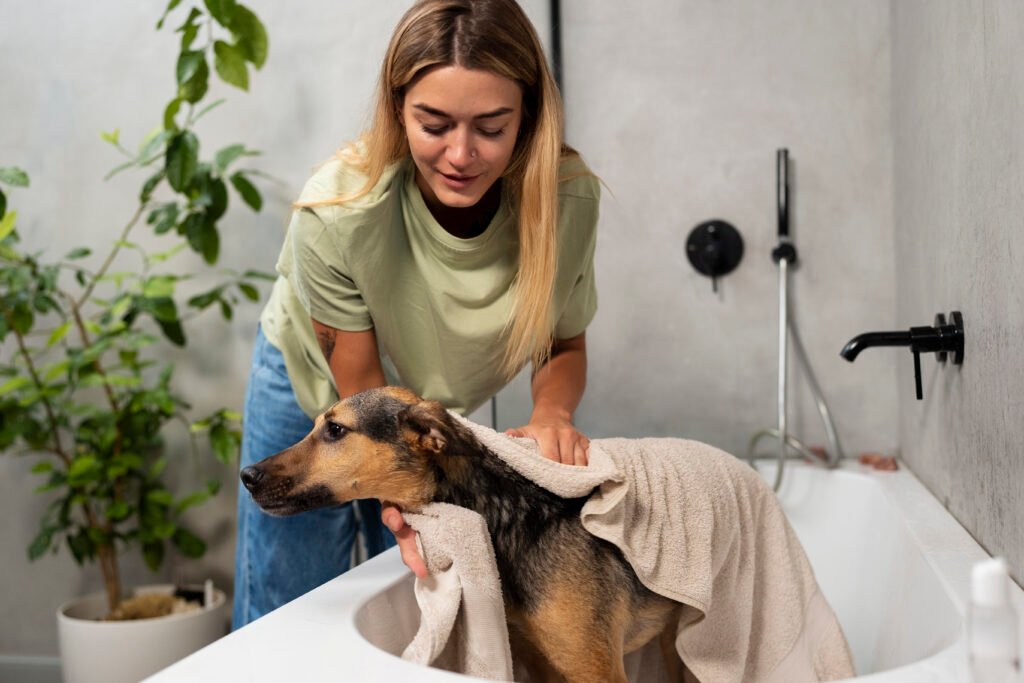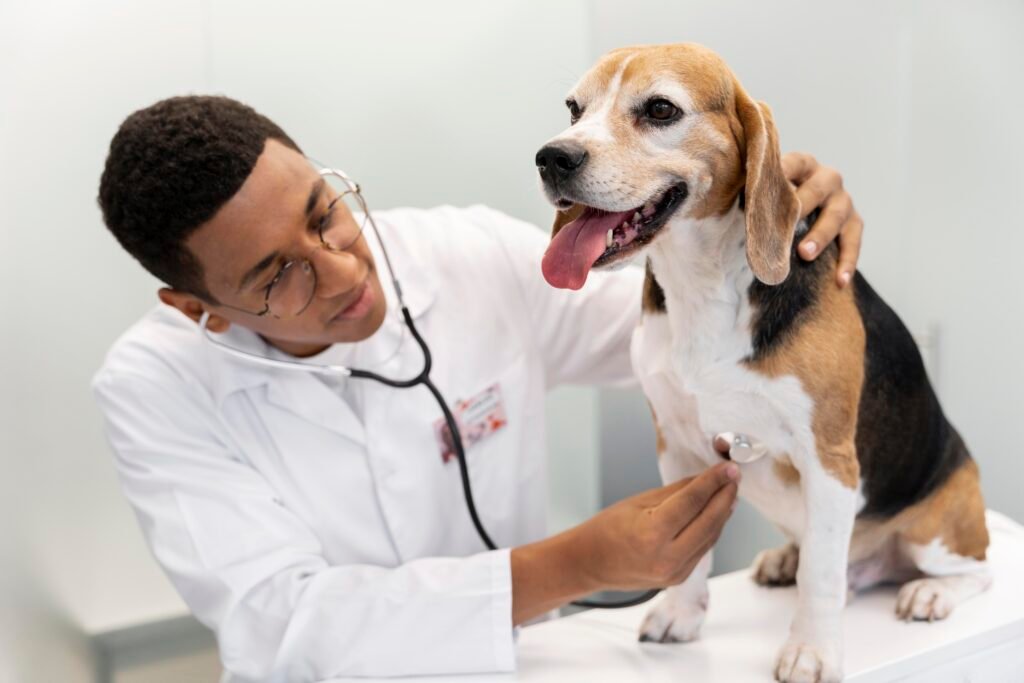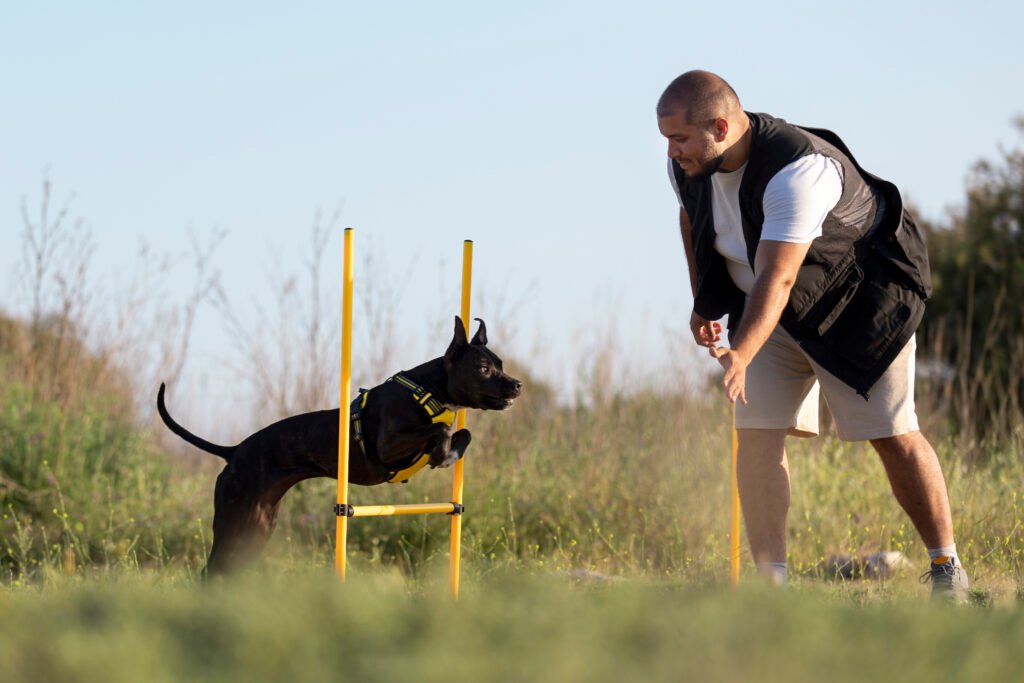
Table of Contents
Introduction
Adding a pet to your life has the potential to be an exceptionally gratifying journey, yet it also carries a bundle of responsibilities. Proper pet care is essential for ensuring your furry friend’s well-being and happiness. In this comprehensive guide, we’ll cover everything you need to know about caring for your pet, from nutrition to grooming and beyond.
Pets hold a special place in our hearts, offering unconditional love, companionship, and a unique bond that enriches our lives. Whether you are a devoted cat person, a dog lover, a fish enthusiast, or prefer the company of more exotic animals, responsible pet care is crucial to ensure your furry, feathered, or scaly friends lead joyful and healthy lives. This comprehensive guide covers essential aspects of pet care that every pet owner should consider.
1. Nutrition and Feeding

Providing your pet with a balanced diet is crucial for their overall health. Make sure to choose high-quality pet food that is appropriate for their age, size, and dietary requirements. Seek advice from your veterinarian to establish suitable portion dimensions and a feeding timetable. Remember, treats are okay in moderation but don’t overindulge.
A well-balanced diet provides essential nutrients that support your pet’s growth, energy levels, and immune system. Dogs and cats have different nutritional needs, so it’s important to choose the right food for their species. High-quality protein sources, whole grains, and vitamins should be part of their diet.
A balanced diet is vital for your pet’s overall health. Consult your veterinarian to determine the best diet for your pet’s species, age, and any specific health concerns. Avoid feeding them human food, as many common ingredients can be harmful to animals. Regular access to fresh water is equally important.
2. Exercise and Playtime

Regular exercise is vital to keep your pet active and prevent obesity. Dogs need daily walks and playtime, while cats benefit from interactive toys and climbing structures. Engaging in physical activities not only maintains a healthy weight but also strengthens the bond between you and your pet.
Playtime isn’t just about physical exercise; it’s also mentally stimulating. Interactive toys that challenge your pet’s problem-solving skills can prevent boredom and anxiety. When engaging in play, remember to respect your pet’s energy levels and offer breaks when needed.
3. Grooming and Hygiene

Grooming needs vary by species, but all pets require some level of maintenance. Brush your pet’s fur regularly, trim their nails, and clean their ears and teeth as needed. Bathe your pet when necessary, using products approved by your veterinarian.
Proper grooming helps keep your pet’s coat and skin healthy. Regular brushing, bathing, and nail trimming are essential. Use pet-friendly grooming products to avoid skin irritations. Additionally, don’t forget to clean your pet’s ears and teeth as per your veterinarian’s recommendations.
Grooming sessions are perfect opportunities to bond with your pet. Use positive reinforcement and treats to create a positive association with grooming activities. If your pet has specific grooming needs based on their breed, consult professional groomers for advice.
4. Regular Vet Check-ups

Scheduling regular visits to the veterinarian is a cornerstone of responsible pet ownership. Vaccinations, parasite control, and preventive care are essential to detect and address any health issues early on. Your vet can also offer guidance on specific health concerns related to your pet’s breed.
During vet visits, take the opportunity to discuss your pet’s overall well-being. Mention any changes in behavior, appetite, or energy levels. Remember that preventative care not only saves you money in the long run but also ensures your pet’s longevity and quality of life.
5. Mental Stimulation
Pets also need mental enrichment to thrive. Provide toys, puzzles, and interactive games that engage their minds. For social animals, like dogs, cats, and birds, spend quality time interacting and playing with them to prevent boredom and loneliness.
6. Socialization

Proper socialization is crucial for pets’ emotional well-being. Gradually acquaint your pet with novel individuals, animals, and surroundings. Socializing helps them develop confidence and reduces anxiety in unfamiliar situations.
7. Training and Behavioral Guidance

Training is not only about teaching commands; it’s also about fostering good behavior and communication. Employ positive reinforcement methods to acknowledge favorable conduct. If you encounter behavioral issues, seek guidance from professionals like trainers or animal behaviorists.
8. Emotional Bonding

Pets thrive on the emotional bond they share with their owners. Spend quality time together, whether through play, cuddles, or simply being in each other’s company. This emotional connection is what makes pets genuinely integral parts of our lives.
The foundation of emotional bonding in pet care rests on the principle of reciprocity. As individuals invest their time, attention, and affection in their pets, these animals respond in kind, creating an intricate dance of emotions. This symbiotic relationship is not confined to one species; it’s a cross-species connection built on shared experiences, routines, and moments of joy and comfort.
9. Emergency Preparedness
Be prepared for emergencies by having a plan in place. Know the nearest veterinary emergency clinics, have a pet first aid kit, and create a list of important contacts. Microchipping your pet can also increase the chances of a reunion if they ever go missing.
10. Respect for Your Pet’s Species

Remember that every pet species has its unique needs and behaviors. Educate yourself about your pet’s natural habits, instincts, and requirements to provide an environment that promotes their well-being.
11. Pet Insurance
Pet ownership brings immense joy and companionship, but it also comes with responsibilities, including ensuring the well-being and healthcare of your furry friend. One way to provide financial protection for your pet’s health is through pet insurance. In this comprehensive guide, we’ll walk you through everything you need to know about pet insurance, its benefits, coverage options, how to choose the right plan, and more.
Conclusion
Caring for a pet is a fulfilling journey that requires dedication and love. By prioritizing their nutrition, exercise, grooming, and health, you can provide your furry friend with a joyful and comfortable life. Remember, each pet is unique, so tailor your care routine to their individual needs. With the right approach, you will create a strong and lasting bond that enriches both your lives. Your furry companion will thrive under your attentive care, enjoying a life full of love, play, and optimal health.
By following the guidelines outlined in this comprehensive pet care guide, you can ensure that your beloved companions lead fulfilling and healthy lives. Remember, your pet relies on you for their well-being, so embrace your role as a responsible and loving pet owner.
FAQs about Pet Care
Q1: How often should I feed my dog/cat?
Ans: Feeding frequency depends on their age and breed. Puppies and kittens might require more frequent meals.
Q2: Can I groom my pet at home?
Ans: Yes, but ensure you use proper tools and techniques to avoid causing any discomfort or injury.
Q3: Why is playtime important for pets?
Ans: Playtime keeps pets mentally stimulated, helps prevent behavioral issues, and strengthens your bond with them.
Q4: How can I help my pet overcome fear of vet visits?
Ans: Gradually introduce them to the vet’s office, reward them for positive behavior, and use calming techniques.



Great article
Thanks for you valuable comments.